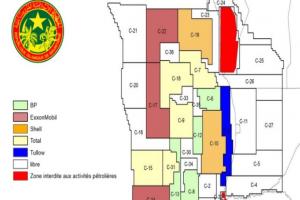
A major future African gas producer, Mauritania had previously experienced around 20 years of oil production from the Chinguetti field, which was exploited then by the Malaysian operator, Patronnas. An experience which should have been sufficient to set up a national strategy for the development of a “local content”. A strategy aimed at the direct involvement of national economic operators throughout the value chain, by strengthening the industrial services and local skills.
The concept of “local content”, which appeared for the first time in Great Britain in the 1970s, refers to the direct repercussions in the national economy through industrial activities, the exploitation of local services and goods, and the wages of workers, in addition to the payment of taxes and royalties collected by the country owner of the exploited resource. Despite the significant revenues derived from the exploitation of the Chinguitti field that mauritanian state earned, and which exceeded 600 million dollars, it is worth noting that the “local content” was not present in the exploitation strategy. Obviously there has been no visible impact on the development of national skills or the promotion of local industrial companies. The majority of industrial service providers and operators directly involved in petroleum activities were foreign companies.
The same holds for most of the skills and expertise used throughout the process, upstream and downstream. Despite their past absence, local companies once again have, now, an opportunity to be directly involved in ongoing projects, as local sub-contractors for the international industrial giants in charge of the execution.
Currently, as part of the development of the first phase of the Great Turtle Ahmeyim (GTA) field, BP has invested more than $ 4 billion for the execution of the four main components of the project (the breakwater, the sub-engineering marine, FPSO and FLNG), shared between Mauritania and Senegal.
The development of the first phase of the GTA project should be an opportunity for skills training and experience transfer; so that the national companies could be sufficiently prepared to participate actively in the 2nd and 3rd phase of the exploitation of the field. Industrial activities in the development of the project must be shared, in an equitable manner, between Mauritanian and Senegalese companies, in accordance with the agreements signed between the two countries.
At present, the comparison between the sites in the two countries shows that the subcontracting entrusted to Mauritania is still mainly limited to the field of logistics, unlike that entrusted to Senegal.
The national strategy for the development of local content, which will be put in place by the Gas Project Negotiation Support and Institutional Capacity Building (PADG) project, should put forward a mechanism for financing local industrial companies and maintain a training program for companies and the qualification of the workforce.
Certainly, it is important to strictly demand the participation of national companies in all the activities of international companies working in the field of hydrocarbons.
Moreover and in addition to the logistics component, the new strategy should focus on the promotion of industrial services linked to the oil business, as a major factor in the development of local content. Concretely, this strategy should allow the national companies in question to take a larger share of the “cost oil”, and thus facilitate the integration of the sector into the national economy.




